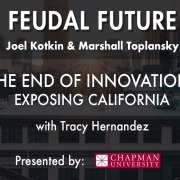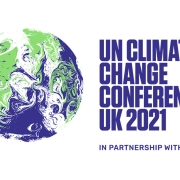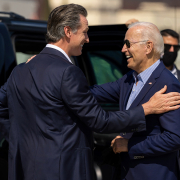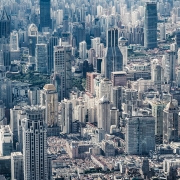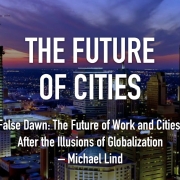Hope and Fear: Can We Avoid a Racial Apocalypse?
Jamil Ford still recalls the disorders of late May. ‘It was like Baghdad’, he recalls, even as jurors listen to the arguments during the trial of Derek Chauvin, the police officer accused of killing George Floyd. ‘I constantly think about it. The past history does not go away’, the African-American architect recalls, noting with trepidation possible National Guard deployments. ‘The mental part is still there.’
I know how he feels. In 1992 we went through this same process in Los Angeles when the police were exonerated in the beating of Rodney King. This unleashed a three-day explosion of often violent protests, resulting in $1 billion in damages and over 50 fatalities. In the end, the disorder led to some necessary shifts in police procedures but ultimately left the area relatively poorer and considerably less black than before.
Will things be different this time around? No politician in American history owes more to African-American leadership and voters than Joe Biden. His flailing campaign was rescued from the respirator by South Carolina’s heavily black Democratic electorate. African Americans sustained his path through states such as Texas. Since taking office, Biden’s commitment to battling the ‘sting of systemic racism’ and encroaching ‘white supremacy’ has accompanied his early actions and seems to have shaped many of his appointments.
The left’s and the media’s embrace of racial apocalypse, both in the US and in Britain, remains sadly selective. The recent Atlanta murders, given exhaustive coverage, appear to be the product not of Trumpista brownshirts but a singular, screwed-up madman. Meanwhile, attacks on Asians historically have come in large measure from minorities, largely African Americans. The most recent attack on Capitol Hill came not from Trumpistas but a follower of the ultimate anti-white, Louis Farrakhan.
The same media that hypes anti-Asian violence by whites usually ignores that by other ‘people of colour’. When the perpetrator is a Muslim jihadi, as was the case in Colorado, coverage has been less, even if the body count was twice as high. The ‘people of colour’ solidarity that bleeds over the pages of mainstream media has little room for nuance. It tends to ignore the fact that many Asians, and many Hispanics, oppose such things as quotas to selective high schools and colleges.
Similarly, most minorities seem not to share common ground with posturing politicians, and progressive intellectuals, who have excused looting as a form of racial redress. Minority business people generally don’t regard random violence as justice; the impact on business enterprises is felt particularly keenly in Minneapolis. A focus on police abuse is clearly needed, but the vast majority of Americans – including millennials and minorities – do not favour defunding law enforcement. They may be more concerned with the resurgence of violent and other crime in our core cities, even though it is often downplayed in the media.
The impending threat of violence in Minneapolis and elsewhere, offers manna from heaven for some but disaster for most. The racial-protest industry, perfected by the openly neo-Marxist Black Lives Matter, has raised a reported $90million, much of it from corporate largesse. What civil-rights activist Bob Woodson calls ‘race-grievance predators’ – like Ibrahim Kendi – are being bankrolled by oligarchs, like Twitter’s Jack Dorsey.
Read the rest of this piece at Spiked.
Joel Kotkin is the author of The Coming of Neo-Feudalism: A Warning to the Global Middle Class. He is the Presidential Fellow in Urban Futures at Chapman University and Executive Director for Urban Reform Institute. Learn more at joelkotkin.com and follow him on Twitter @joelkotkin.
Photo credit: Ted Eytan via Flickr under CC0 2.0 License.

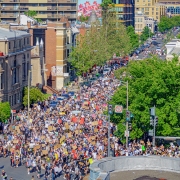 Ted Eytan, used under CC 2,0 License
Ted Eytan, used under CC 2,0 License